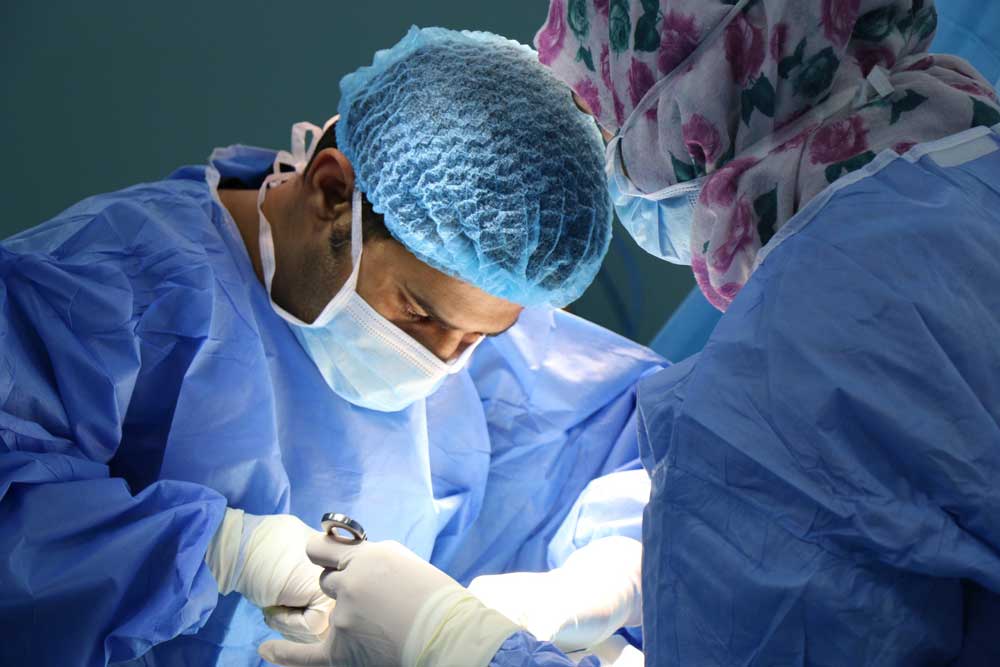16 june 2023 | Aaron Jackson
Surgical Interventions For Back Conditions: When Is Surgery Recommended?
Back conditions can range from mild discomfort to severe pain that affects daily life. While non-surgical treatments are often the first line of defence, there are cases where surgical intervention becomes necessary. In this blog, we will explore the circumstances in which surgery may be recommended for back conditions, the different types of surgical interventions available, and what to expect during the surgical process.
Understanding Surgical Options:
Spinal Fusion:
Spinal fusion is a common surgical procedure for various back conditions, including degenerative disc disease, spinal stenosis, and spondylolisthesis. It involves joining two or more vertebrae to create stability and reduce pain. During the surgery, the surgeon may use bone grafts or implants to facilitate fusion. Spinal fusion aims to alleviate pain, improve spinal stability, and prevent further damage.

Discectomy:
A discectomy is performed to treat herniated discs, which can cause nerve compression and severe pain. During the procedure, the surgeon removes the portion of the disc that is pressing on the nerves, thereby relieving pain and restoring normal function. Minimally invasive techniques, such as microdiscectomy, are often used, allowing for smaller incisions, less tissue disruption, and faster recovery.
Laminectomy:
Laminectomy, also known as decompression surgery, is performed to relieve pressure on the spinal cord and nerves. It involves removing the lamina, a part of the vertebral bone that covers the spinal canal. This procedure is commonly used for conditions such as spinal stenosis and herniated discs. By creating more space for the nerves, laminectomy aims to alleviate pain and improve mobility.
When Is Surgery Recommended?
Surgery is typically considered when non-surgical treatments have been exhausted or when the severity of the back condition warrants immediate intervention. The decision to undergo surgery is based on several factors, including the extent of pain, the presence of neurological symptoms, loss of function, and the impact on quality of life. It is important to have a thorough evaluation by a qualified healthcare professional who specializes in back conditions to determine the most appropriate treatment plan.
Take action today and reach out to Dallas Back Clinics today at (469) 833-2927 to schedule a consultation with our experienced team.
Recovery and Rehabilitation:
After back surgery, a structured rehabilitation program is crucial for successful recovery. Physical therapy and exercises are often prescribed to restore strength, flexibility, and mobility. It is essential to follow the post-operative instructions provided by the surgical team and attend all follow-up appointments for proper monitoring and guidance throughout the recovery process.
While surgery is not the first option for back conditions, it can be a highly effective treatment for those who have exhausted non-surgical alternatives or have severe and debilitating symptoms. Consulting with a qualified spine specialist is essential to determine if surgery is the right course of action. Surgical interventions, such as spinal fusion, discectomy, and laminectomy, can provide much-needed relief and restore function. Remember that each case is unique and personalized treatment plans are essential to achieve the best possible outcome.

At Dallas Back Clinics , we understand the impact that back conditions can have on your daily life. Our dedicated specialists are committed to providing personalized and advanced treatment options to help you find relief and regain your quality of life.

 Telehealth Visits Available
Telehealth Visits Available
